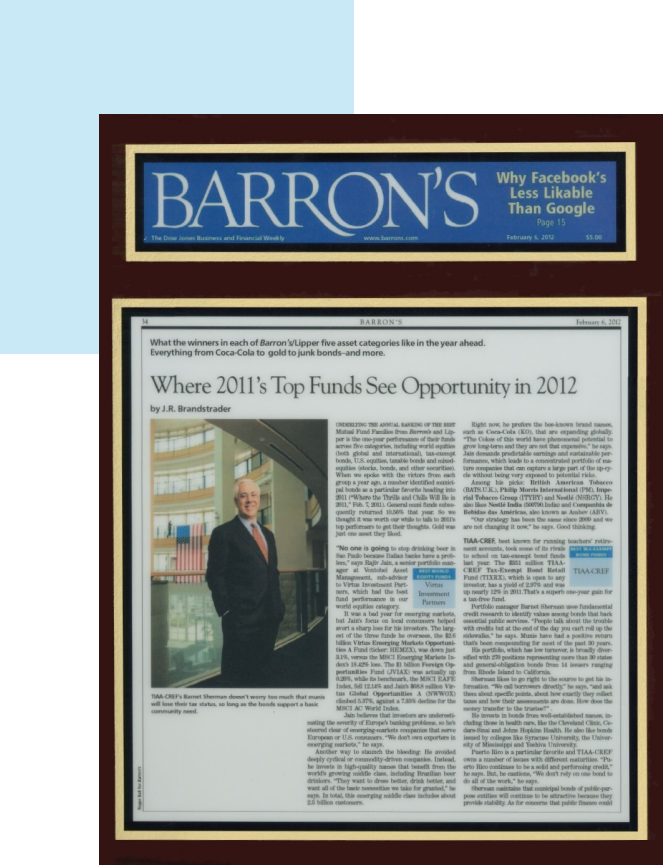NEWS
Popping Mexico's Tortilla Bubble
As tortilla prices balloon with inflated costs of their main ingredient, white corn, the Mexican government pins their hopes on an export tariff to pop the bubble.
COMMENTARY
Argentine Pesos Not Worth The Paper They’re Printed On
Argentina’s Peso is nearly worthless. Now the country wants to join Brazil to form a South American currency like the Euro. Good luck with that.
Interview
The U.S. Dollar: Under Attack?
The U.S. Dollar, the world’s backbone currency, lost value against major foreign currencies, from the Euro to the Chinese Yuan. Normal currency value fluctuations—or is the dollar under attack?
Analysis
Russians Bank on Iran
Putin and the Ayatollah’s banking deal hopes to bypass western economic sanctions. The scary thing is it just might work.






about Barnet Sherman
Backstory
Portfolio Manager | Eagle Scout | Professor | Congressional Aide | Certified Wine Expert
Growing and managing multibillion dollar portfolios for Morgan Stanley ($3B) and TIAA ($10B) during his 30+ year career on Wall Street, Barnet Sherman also started his own hedge fund, and wrote extensively on the capital markets for Forbes, where he continues to write as a Senior Contributor.
Now a Professor at Boston University, he draws on these experiences in his…
Corporate Finance, Accounting, and Multinational Finance and Trade classes to give the graduate students practical, real-world insights on these complex topics. As a subject matter expert, his perspective on investing and the capital markets has been noted in The Wall Street Journal, Barron’s, Bloomberg, The New York Times, Chronicle of Higher Education, CNBC, and Inc. among other publications.
His consulting firm, The Tenbar Group, advises public companies, private equity impact fund portfolio companies and mission-driven start-up clients in the healthcare, senior care, and housing sectors on strategic transactions, investment banking, finance, business development, and valuations.
Mr. Sherman also served as a Congressional Aide (98th Congress, 2nd District-NY). He introduced legislation benefitting handicapped Americans, drawing wide bipartisan support in both the U.S. House of Representatives and the U.S. Senate. He’s testified in U.S. Federal Bankruptcy Court and for the Securities and Exchange Commission in Administrative Hearings.
He is an Eagle Scout, ran and finished the NYC Marathon (4:09:44), completed the Wine, Spirits, and Education Trust Level III Certification, and launched a limited-run podcast series. As a SAG Member, he’s performed in film and television, training at Strasberg Studios for acting and Second City for improv.
Mr. Sherman earned his undergraduate degree at Syracuse University and his masters from Columbia University School of International and Public Affairs. He now lives with his wonderful wife Jennifer and her cat in Hingham, Massachusetts.
Training






Awards
INVESTING

Portfolio Management: Barron’s/Lipper Top-5 Funds
Writing
93 Forbes Articles
9 Editor’s Choice Awards
Top 5 Articles
Award Winning Article
• National Federation of Press Women, 2021
First Place: Specialty Articles, Business
• Fellowship for Postgraduate Medicine, 2021
North America Award: Best Medical Writing In Social Media
Fellowship of Postgraduate Medicine
Podcasts






